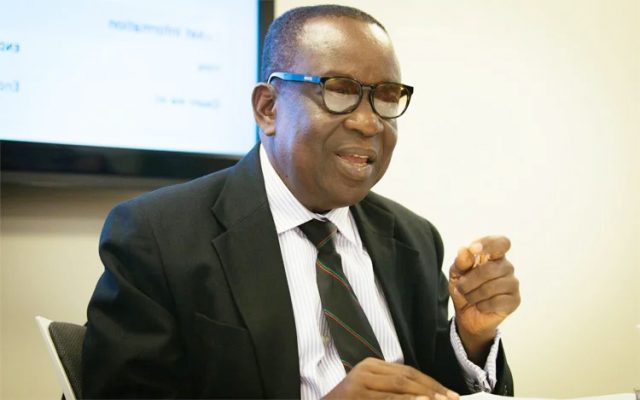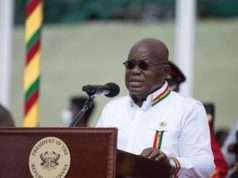Minister for National Security Mr. Albert Kan-Dapaah has advocated for homegrown initiatives in curbing security threats in West Africa during a lecture at the African Studies Centre, University of Florida, US.
He indicated that developments in West Africa are emblematic of the chaos and crisis that have characterised the world in the past decade, the magnitude of which has remained unprecedented since the end of the cold war.
Mr. Kan-Dapaah further called on development partners to tailor their interventions to support local initiatives aimed at fostering stability within the region.
Speaking on the theme “Ensuring Security and Democracy in West Africa: Ghana’s Role in Regional and International Cooperation,” Ghana’s National Security Minister noted the drastic deviations in motivations of perpetrators of insecurity in “our region, underscoring the peculiar challenge in the Sahel, the Lake Chad Basin, etc., highlighting the threats to Ghana and emphasizing the necessity for distinct counter approaches.”
He acknowledged that “Of particular concern is the southward drift of the terrorist threat from the Sahel region to Coastal West African states along the Gulf of Guinea. For the first time, littoral States such as Togo and Benin which were once considered to be Police States impervious to terrorist attacks, recorded more than 40 deaths each from terrorism in 2023. The result of this development is that, with the exception of Ghana, all Coastal West African States along the Gulf of Guinea have recorded a terrorist attack.”
In light of these complexities, Mr. Kan-Dapaah advocated for the implementation of “homegrown initiatives anchored on a sub-regional cooperation framework in the fight against terrorism.”
He emphasised Ghana’s unique position as a bastion of democracy and stability within the region, particularly as neighboring countries like Togo face risks of democratic regression.
Mr. Kan-Dapaah also stressed the importance of bolstering support for ECOWAS and the Ghana-led Accra Initiative to tackle the diverse array of challenges confronting the region. Ranging from unemployment to governance deficiencies to the scourge of terrorism, these challenges necessitate both strategic kinetic and non-kinetic approaches to effectively mitigate transboundary threats while simultaneously addressing internal issues.
He urged students and the entire academic community to intensify their research efforts, seeking measures to achieve “a peaceful and stable West African region where democracy thrives and terrorism becomes a thing of the past.”









































